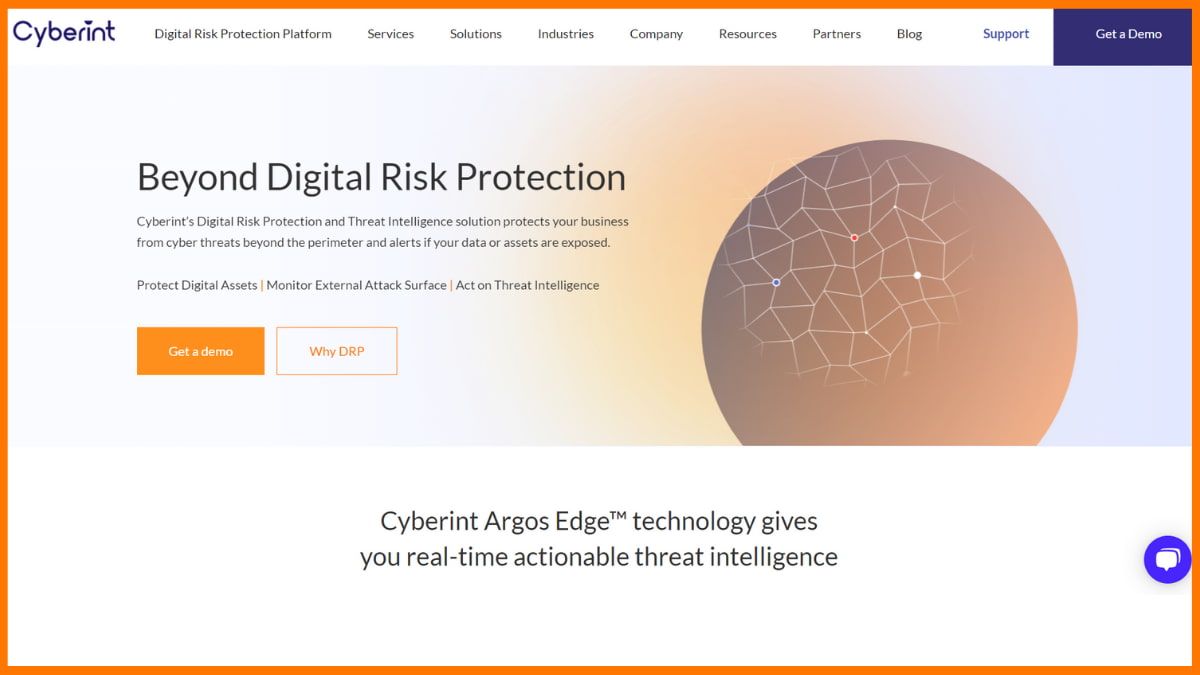With the rise of sophistication in computing and a huge threat in the cyber domain, Ethical Hacking has become important. Also, cyber security needs to be very much strengthened. The ultimate test of cyber security is penetration test or ethical hacking. In this, hackers try hacking the system with various methods and see if the system will get hacked or not.
This is why ethical hacking companies are of great importance in today’s time. They show you the true strength of your software in the practical world. So without much ado, let me start discussing top ethical hacking companies to watch in 2022.
1. Crowdstrike
2. HackerOne
3. Balbix
4. Bitglass
5. Carbon Black
6. Sequretek
7. Security Bulls
8. Cryptoloc Technology Group
9. Cyberint
10. Lightspin
FAQs
1. Crowdstrike

Crowdstrike is a cybersecurity company founded by George Kurtz, Dmitri Alperovitch, and Gregg Marstonone in 2011. It has a cloud-native platform that detects and block threats. It is known for its foolproof hacking methodologies.
2. HackerOne

HackerOne is a United States-based company that provides various security services in this country. They have one of the best hacking and security experts in their company. Their company works in preventive measures, they help developers build their app hackproof in the development phase. This company works with e-commerce, financial services, and many other companies.
Some of their esteemed clients are Lufthansa Airlines, HBO, Twitter, Spotify, and the US department.
3. Balbix

Balbix is based in San Francisco and works in automating cyber security for different companies. Their speciality is real-time cyber security checks and troubleshooting. They have expertise in data, and insights to deal with real-time attacks. They have services and products which help their clients build robust security systems.
4. Bitglass

Bitglass has unique cyber security technology that can determine if you are facing a threat by merely looking at your interaction with their software. The most popular product of Bitglass is CASB. This is a security system for remotely working systems. With the rise in Pandemic, remote working is on the rise and this is where this software can come in handy. Their main goal is to safeguard the end computer.
5. Carbon Black
Carbon Black specializes in cloud-native endpoint security systems. Apart from this, they also specialize in workload protection systems. They use behavioural analytics to protect their system. Using its year’s long experience and various insights, it has designed systems by which it can block the most complex cyber-attacks.
Their product VMware Carbon Black Cloud is one of the most popular products. It accesses every abnormal activity and learns it so as to avoid these types of activities in the future.

6. Sequretek

It is a New England based startup. Sequretek specializes in workload protection. They have designed cyber security technology to keep in mind modern-day security standards.
Sequretek also uses security technology which helps in combatting modern-day attacks. It uses advanced analytics. They have trained their product to detect anomalous behaviour from any user and prevent any further unsafe activity.
7. Security Bulls

Security Bulls specializes in penetration testing. Their cyber security testing services and monitoring technology is very advanced. It offers security analysis services to its clients. They also provide you with a risk percentage for your digital asset after analyzing it.
8. Cryptoloc Technology Group

Crpytoloc is based in Brisbane and is known for its advanced cyber security technology. In the ongoing years, it has researched and innovated a lot in the field of cyber security. Due to its amazing technologies, it was named Forbes 20 best cyber security startups in 2020.
It also has a patent registered in encryption-based security systems. This company also provides several platforms to its client companies which makes their work simpler.
9. Cyberint

Cyberint is an Israel-based company that is known for its robust security systems. They provide all the services which a cyber security system is expected to give. The company provides attack simulation, virtual HumINT operations. They believe in delivering trusted long-term security systems. They devise innovative preventive methods so that their clients can safeguard their digital assets properly.
10. Lightspin

It was founded in Ra’anana, Israel in 2015. This company is more known for the training it gives to its client employees. They play a crucial role in upskilling its client employee. In this platform, you can specialize in any one of the disciplines in cyber security. Here you can avail yourself of personalized learning and gain a lot of professional insight into the field of cybersecurity.

Conclusion
All of these companies have extraordinary skills in their fields. Each company has a speciality and works diligently in that area. These companies have thought out of the box and have devised special cyber security systems.
FAQs
Which company is best for ethical hacking?
Crowdstrike, Hackerone, BitGlass, and Balbix are some of the top ethical companies.
Who is the best Ethical Hacker in the world?
Kevin Mitnick, Tsutomu Shimomura, Richard Stallman, Charlie Miller, Greg Hoglund, Joanna Rutkowska, and Sherri Sparks are some of the top ethical hackers in the world.
Which country is best for ethical hacking?
China is the top country from where the most security hackers come from.

